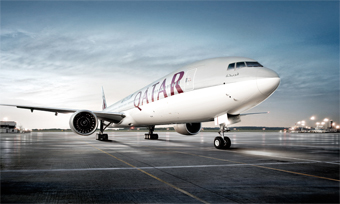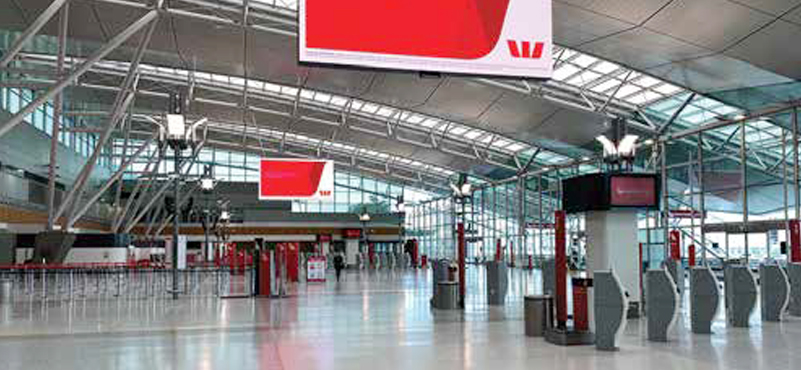Qatar Airways plan of setting up a domestic airline in India is facing some serious political, regulatory and industry barriers. Some of the prominent domestic airline operators have openly voiced their concern over the development.
 In an unprecedented development, Qatar Airways recently announced its plans to setup a domestic airline in India. “Yes, we will have a 100% owned domestic carrier in India that will belong to both the QR (Qatar Airways) and our state investment arm, as India has now allowed foreign direct investment in domestic carriers within India,” Qatar Airways CEO Akbar Al Baker had said at ITB Berlin recently. “We will soon be making an application to that effect, and from there we will proceed,” he added.
In an unprecedented development, Qatar Airways recently announced its plans to setup a domestic airline in India. “Yes, we will have a 100% owned domestic carrier in India that will belong to both the QR (Qatar Airways) and our state investment arm, as India has now allowed foreign direct investment in domestic carriers within India,” Qatar Airways CEO Akbar Al Baker had said at ITB Berlin recently. “We will soon be making an application to that effect, and from there we will proceed,” he added.
However, the government’s recent move to allow 100% FDI in commercial aviation and willingness to allow an airline which is fully-owned by foreigners has ruffled a few feathers in the local market.
The move, which is a new experiment in the sector, is set to account for new challenges to local players. Qatar Airways has been eying an entry in to the Indian market for a while and has repeatedly expressed a desire to invest in IndiGo, which is the country’s largest domestic airline. There were also talks of an equity partnership with Indigo in the past but the international airline was unable to woo the domestic one. Recent reports have even suggested that the domestic airlines, grouped in the Federation of Indian Airlines, which include, InterGlobe Aviation Ltd-run IndiGo; GoAir, operated by Go Airlines Ltd; SpiceJet Ltd and Jet Airways (India) Ltd, are preparing to oppose the move legally.
“If the objective of the government with 100 per cent FDI was to get investment to the country, then this will not get any investment as when you set up an airline, essentially you lease aircraft and this will be done from outside India,” Ajay Singh, MD and Chairman, Spicejet is reported to have told the mainstream media. The aviation sector in India is one of the most competitive sectors in the world with “the highest costs and the lowest fares” and “level playing field” must be assured so that the sector can grow and prosper, he added.
The federation has in the past already taken the Ministry of Aviation to court over the grant of licenses to AirAsia India, in which Tata Sons has a majority 51% stake and Malaysia’s Air Asia Bhd and Vistara have the minority 49%. Tata Sons is also partnered with Singapore Airline Ltd for Vistara.
According to industry experts, what needs further scrutiny is Qatar Airline’s actual motivation in eyeing Indian traffic. Apart from national security concerns, one of the reasons being cited for opposition to this move is that Qatar does not allow any foreign airline to start-up airlines in Qatar. The lack of reciprocity is being cited as an element of unfair practices. Also, India is poised to become the world’s third largest aviation market by 2020. Domestic air travel is expected to grow by 9.5% annually between 2011 and 2031, according to media reports. Currently, only about 2% of India’s population uses airlines, providing a massive opportunity to expand the market. The industry is looking at these growth figures when the domestic airlines, helped by the plummeting crude oil prices, have just started to see some recover after years of gloom. Between 2011 and 2015, none of India’s airlines, except for IndiGo and GoAir, made any profits with two airlines’, Kingfisher and Paramount, going on to shut shop completely. Experts believe that the entry of a foreign owned airline in to the market at this point of time would further destabilise the situation. The move is also aimed at making Doha a bigger international aviation hub and the growing numbers from India will likely feed in to Qatar Airways’ global network.
At a time when the Indian government has launched its ambitious UDAN scheme to increase regional connectivity, the Qatar government’s focus is onward traffic from Doha and not on domestic underserved routes. “We have made our concerns known to the government. It is up to them to take the appropriate call and we are confident that they will take a call which is in the interest of the country,” Ajay Singh is reported as having said.




































